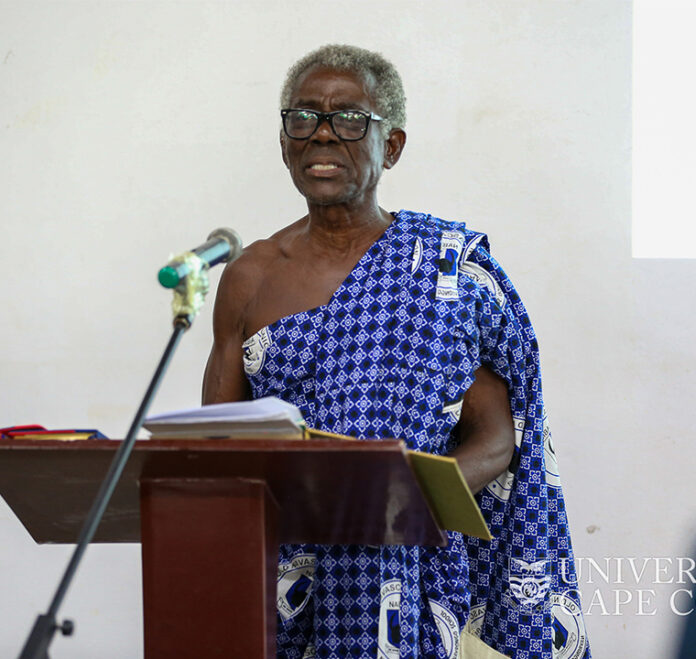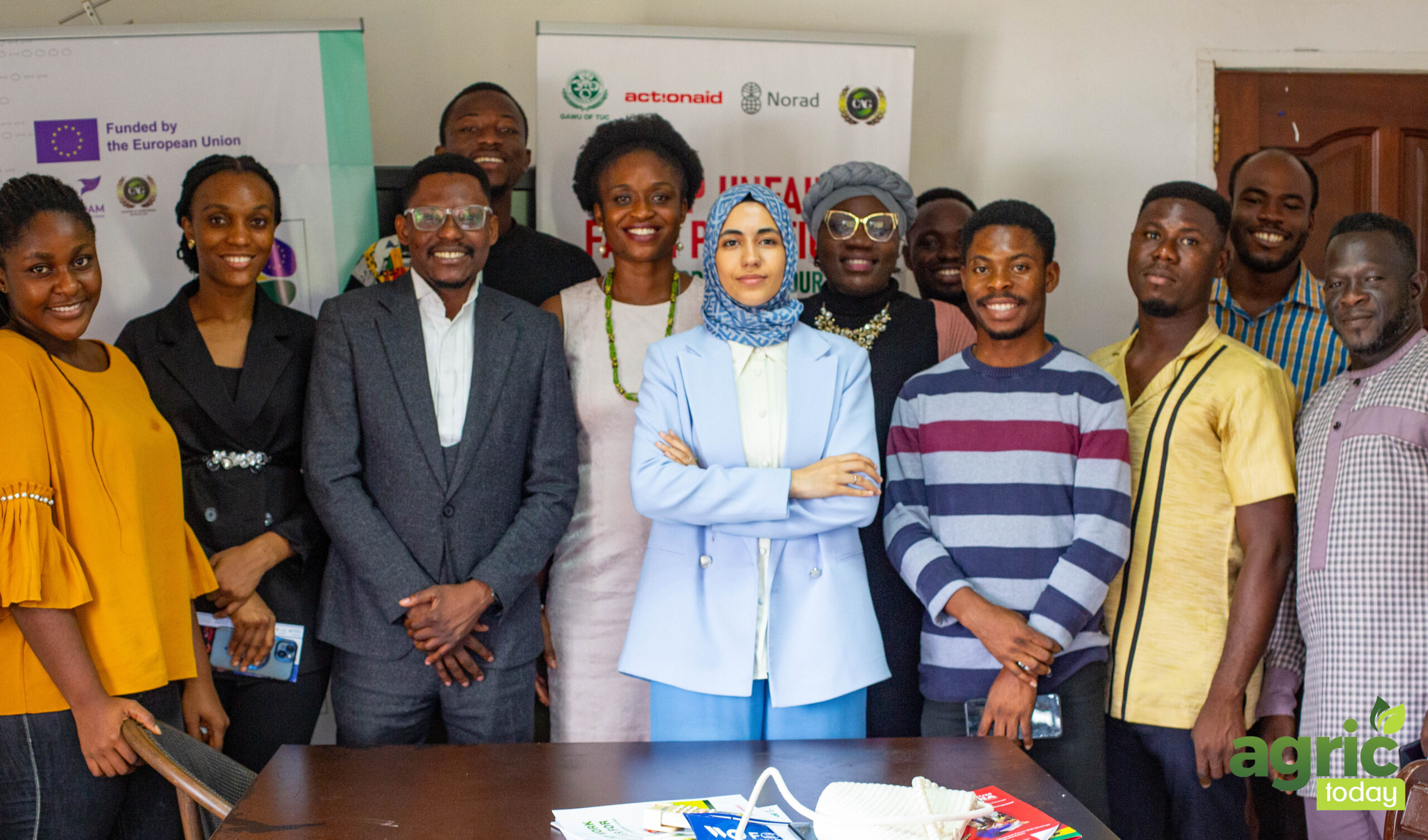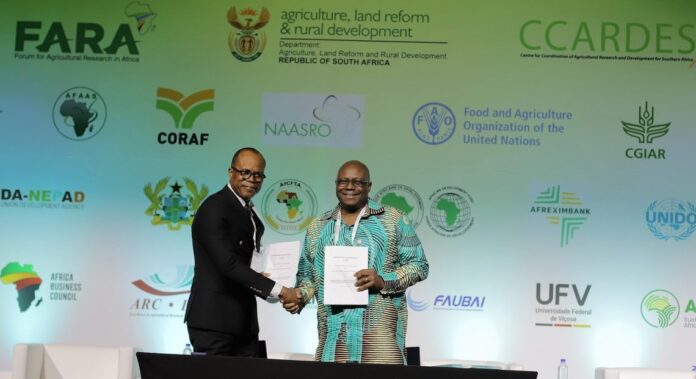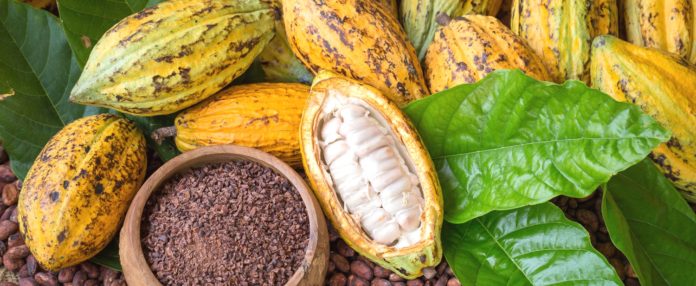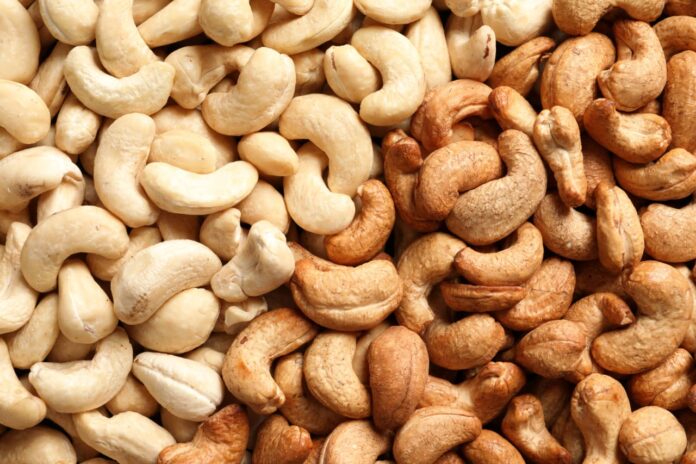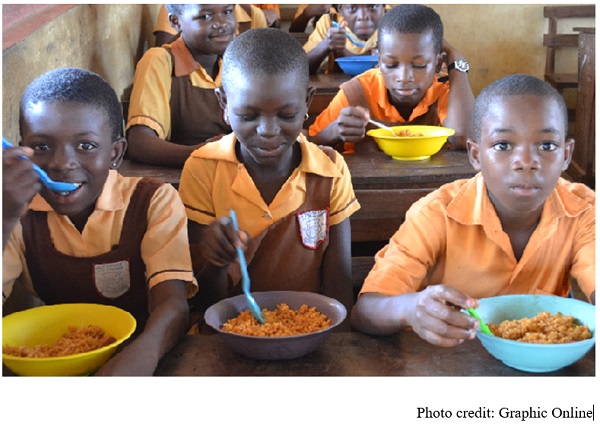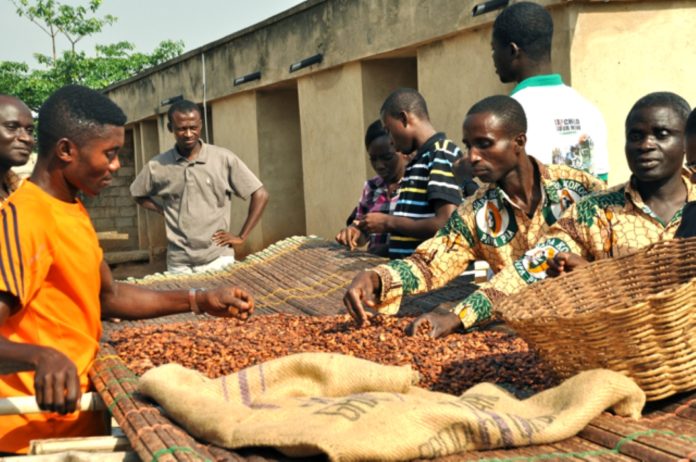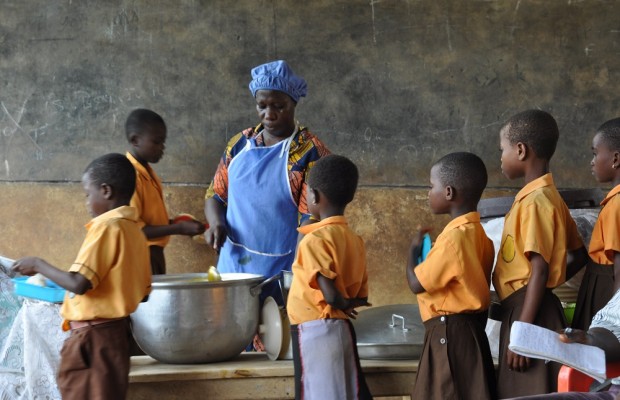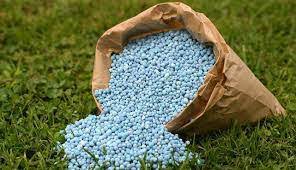A Senior Citizen, Mr. Yaw Opoku Asiama, has raised alarm over the increasing spate at which young people are engaging in illegal mining (popularly called galamsey) to the detriment of agriculture.
He expressed dismay over the urge by the youth to indulge in illegal mining instead of farming where more hands are needed. He said many individuals engaged in extensive commercial farming were far advanced in age and physically weak hence, the youth should be more interested in that field.
‘I have left my 5 acres of farm at Effutu with this beautiful grey hair. I can’t weed 5 acres at my age. We need to inculcate the love of farming in our up-and-coming generation instead of them using their strength to do galamsey’ he explained.
Mr. Asiama, who is a retired lecturer, School of Agriculture-UCC, said this when he took his turn at the Research Seminar Series organised by the School of Agriculture of the University of Cape Coast.
Held at the Sasakawa Conference Room, the Seminar was on the topic, ‘Ghana’s Agriculture: Which way in the light of Climate Change.’
He also called on government to revive the defunct Farm Institutes to produce professional farmers and farm workers.
Mr. Asiama, fondly known as Kwame Nkrumah, admitted that estate developers were the major competitors of farmers and they were using their affluence to grab lands to put up magnificent buildings.
Mr. Asiama also called for the institution of a Land Use Policy aimed at demarcating areas for estate developers and agriculture.
He called for the establishment of a Weather Commission mandated to study the weather to re-demarcate the agro-ecological zones of the country.
‘As human beings, we don’t have the power to alter climate change to suit our agriculture but we can do serious research to change agriculture to suit climate change’ he stressed.
In his view, the time had come for the country to place emphasis on root and tuber crops, indicating, ‘These are very resilient and can withstand weather changes and can also serve as animal feed for poultry.’
Like Cocoa Marketing Board, he appealed to government to set up marketing boards for stable crops to enable the farmer earn money irrespective of any uncertainty that would hit the agriculture sector.
Mr. Asiama encouraged import substitution of products made in Ghana to decrease the over reliance of foreign products.
He discouraged the misuse of pesticides and herbicides in farming and called on farmers to use farm machinery in their farms.
Mr. Asiama implored agriculture academicians in the tertiary institutions to set up an Agric Advisory Council to be the driving force behind agriculture in the country rather than politicians.
The Seminar was chaired by a former Provost of the College of Agriculture and Natural Sciences, Prof. LK Sam Amoah.

